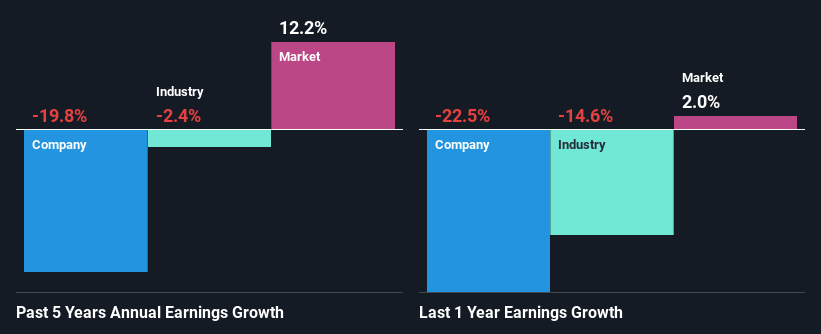Does Persimmon Plc's (LON:PSN) Weak Fundamentals Mean A Downturn In Its Stock Should Be Expected?
Most readers would already know that Persimmon's (LON:PSN) stock increased by 9.6% over the past three months. However, in this article, we decided to focus on its weak financials, as long-term fundamentals ultimately dictate market outcomes. Particularly, we will be paying attention to Persimmon's ROE today.
Return on Equity or ROE is a test of how effectively a company is growing its value and managing investors’ money. Simply put, it is used to assess the profitability of a company in relation to its equity capital.
View our latest analysis for Persimmon
How Is ROE Calculated?
ROE can be calculated by using the formula:
Return on Equity = Net Profit (from continuing operations) ÷ Shareholders' Equity
So, based on the above formula, the ROE for Persimmon is:
7.5% = UK£256m ÷ UK£3.4b (Based on the trailing twelve months to June 2024).
The 'return' refers to a company's earnings over the last year. One way to conceptualize this is that for each £1 of shareholders' capital it has, the company made £0.08 in profit.
What Is The Relationship Between ROE And Earnings Growth?
Thus far, we have learned that ROE measures how efficiently a company is generating its profits. We now need to evaluate how much profit the company reinvests or "retains" for future growth which then gives us an idea about the growth potential of the company. Assuming everything else remains unchanged, the higher the ROE and profit retention, the higher the growth rate of a company compared to companies that don't necessarily bear these characteristics.
Persimmon's Earnings Growth And 7.5% ROE
On the face of it, Persimmon's ROE is not much to talk about. However, given that the company's ROE is similar to the average industry ROE of 7.8%, we may spare it some thought. Having said that, Persimmon's five year net income decline rate was 20%. Bear in mind, the company does have a slightly low ROE. So that's what might be causing earnings growth to shrink.
Next, when we compared with the industry, which has shrunk its earnings at a rate of 2.4% in the same 5-year period, we still found Persimmon's performance to be quite bleak, because the company has been shrinking its earnings faster than the industry.
Earnings growth is an important metric to consider when valuing a stock. What investors need to determine next is if the expected earnings growth, or the lack of it, is already built into the share price. Doing so will help them establish if the stock's future looks promising or ominous. Has the market priced in the future outlook for PSN? You can find out in our latest intrinsic value infographic research report.
Is Persimmon Making Efficient Use Of Its Profits?
Persimmon's declining earnings is not surprising given how the company is spending most of its profits in paying dividends, judging by its three-year median payout ratio of 95% (or a retention ratio of 5.4%). The business is only left with a small pool of capital to reinvest - A vicious cycle that doesn't benefit the company in the long-run. To know the 2 risks we have identified for Persimmon visit our risks dashboard for free.
Additionally, Persimmon has paid dividends over a period of at least ten years, which means that the company's management is determined to pay dividends even if it means little to no earnings growth. Our latest analyst data shows that the future payout ratio of the company is expected to drop to 50% over the next three years. Accordingly, the expected drop in the payout ratio explains the expected increase in the company's ROE to 12%, over the same period.
Conclusion
Overall, we would be extremely cautious before making any decision on Persimmon. Particularly, its ROE is a huge disappointment, not to mention its lack of proper reinvestment into the business. As a result its earnings growth has also been quite disappointing. Having said that, looking at current analyst estimates, we found that the company's earnings growth rate is expected to see a huge improvement. Are these analysts expectations based on the broad expectations for the industry, or on the company's fundamentals? Click here to be taken to our analyst's forecasts page for the company.
Have feedback on this article? Concerned about the content? Get in touch with us directly. Alternatively, email editorial-team (at) simplywallst.com.
This article by Simply Wall St is general in nature. We provide commentary based on historical data and analyst forecasts only using an unbiased methodology and our articles are not intended to be financial advice. It does not constitute a recommendation to buy or sell any stock, and does not take account of your objectives, or your financial situation. We aim to bring you long-term focused analysis driven by fundamental data. Note that our analysis may not factor in the latest price-sensitive company announcements or qualitative material. Simply Wall St has no position in any stocks mentioned.
